The views expressed in our content reflect individual perspectives and do not represent the authoritative views of the Baha'i Faith.
Two well-known stories in the Judeo-Christian Faith tradition feature an ark: that of Noah and the flood, the other being the ark of the covenant during the time of Moses. What does an ark signify?
For some people, every detail of these biblical stories is literally true. For others, the ark serves as a symbol of spiritual truths that can benefit humanity still today. Let’s examine this question from a Baha’i perspective, and see where it takes us.
RELATED: A New Ark — Why the Story of Noah Matters
First, we need to acknowledge one of the great gifts of the Baha’i revelation – the philosophical basis and principles of the Faith are based on sound reasoning, science, and what is plainly visible and universally known in the modern world. Abdu’l-Baha, the interpreter of the Baha’i writings, spoke about this theme, describing how religion will no longer be a positive force in the lives of people and society if it fails to take into consideration modern scientific knowledge and adheres to literal teachings and stories from the past. In a talk he gave to the Unitarian society in Boston in 1912, Abdu’l-Baha said:
Religion is the outer expression of the divine reality. Therefore it must be living, vitalized, moving and progressive. If it be without motion and non-progressive it is without the divine life; it is dead. … In view of this, shall blind imitations of ancestral forms and theological interpretations continue to guide and control the religious life and spiritual development of humanity today? Shall man gifted with the power of reason unthinkingly follow and adhere to dogma, creeds and hereditary beliefs which will not bear the analysis of reason in this century of effulgent reality? Unquestionably this will not satisfy men of science, for when they find premise or conclusion contrary to present standards of proof and without real foundation, they reject that which has been formerly accepted as standard and correct and move forward from new foundations.
So does the account of Noah and the ark, one of the best-known stories of the Old Testament found in the Book of Genesis, represent an example of these “ancestral forms and theological interpretations” that we can no longer take as literal truth in a modern age?
Like millions of others, as a grade schooler with a Catholic upbringing I was taught the story of Noah. As a child I learned how God directed Noah to build an ark because God was unhappy with the sins of humanity. In my mind I pictured the huge boat built by Noah and his three sons while being laughed at by his neighbors. Then I imagined that ark, full of animals, afloat on a sea that covered the entire planet from 40 days of torrential rain. Not so pleasant was the vision of every other person and animal desperately drowning.
During my teen years, going to a public high school with lessons in biology, history, geography, etc., and after having many discussions with others on religious subjects, I found I could no longer accept this literal story – along with many other Bible stories – and I abandoned my belief in organized religion.
Too many elements of the biblical account did not make sense to me. For example, how could a loving and forgiving God kill every person on Earth, even babies, good people, and other innocents? How did Noah collect a male and female of every animal species (including birds and insects) on the entire planet and herd them into a boat? What about predators and prey animals cooped up together? Was the boat big enough for all these animals and their food, which had to last over a year while they were afloat? What about daily clean-up from all these critters? How could Noah, his three sons, and their wives re-populate the entire planet with all its different races, religions, and cultures? Well, you get the idea why I couldn’t possibly accept the literal story of Noah’s ark.
When I became a Baha’i, however, the concept of an ark as a symbol of spiritual protection and safety from unwise actions made much more sense. Baha’u’llah, the prophet and founder of the Baha’i Faith, used the symbol of the ark in his writings, as in this passage:
Be an ornament to the countenance of truth, a crown to the brow of fidelity, a pillar of the temple of righteousness, a breath of life to the body of mankind, an ensign of the hosts of justice, a luminary above the horizon of virtue, a dew to the soil of the human heart, an ark on the ocean of knowledge, a sun in the heaven of bounty, a gem on the diadem of wisdom, a shining light in the firmament of thy generation, a fruit upon the tree of humility.
I accepted the core Baha’i principle of progressive revelation as described by Baha’u’llah. He taught that the essence of the Creator is beyond the range of knowledge and understanding for humans, so at different times and places God sends to humanity a perfect teacher who manifests knowledge, spiritual authority, and loving-kindness. Before much written language existed and people were pre-literate, these messengers of God revealed their teachings using parables, metaphorical language, and symbolic images that the people of the time could understand – for example, an ark as a sturdy vessel providing protection from a flood.
A detailed description of the Baha’i principle of progressive revelation can be found here: The Baha’i Concept of Progressive Revelation – BahaiTeachings.org
To me, the story of Noah expands on the creation story of Adam and Eve, found earlier in the book of Genesis, and conforms to the Baha’i concept of progressive revelation.
One of the lessons we can learn from the Garden of Eden story is that God is the Creator and that He established a law which, if disobeyed by the two people He created, would result in negative consequences for themselves and their offspring. With Noah, however, God had more of a dialogue with His chosen messenger, gave him more detailed directions as to what he should do and established a covenant with him. The message for both of these stories is that God is all-knowing, and obedience to His commands are what is best for the happiness and well-being of society and every individual. These stories, although not literally true, contained critical spiritual lessons and truths that have helped guide the actions of people for millennia.
This seems similar to a loving parent when bringing up a small child. Sometimes there is a need for punishments to correct their actions, protect them, and guide them in a way they can understand. The parent is much more learned than an innocent child, and has a better understanding of what is right and wrong and the consequences of their children’s behaviors. Thus, because they love the child, they accept the responsibility of establishing and enforcing rules. Of course, any correction to a child’s actions should not include harsh words or physically harm.





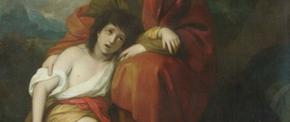

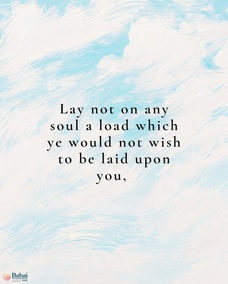
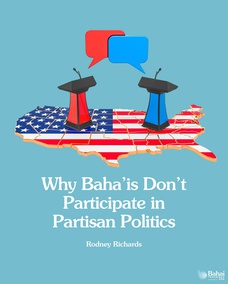
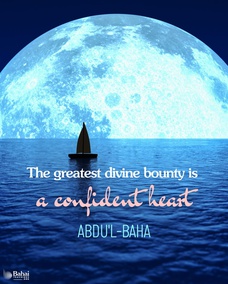
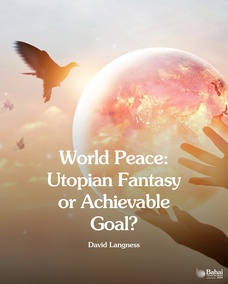
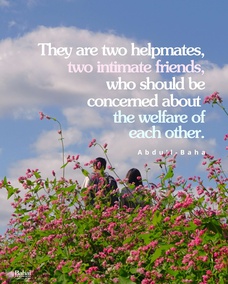
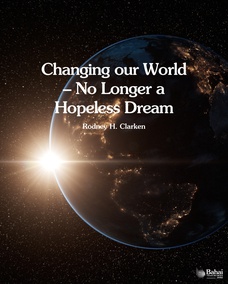



Comments
Sign in or create an account
Continue with Googleor